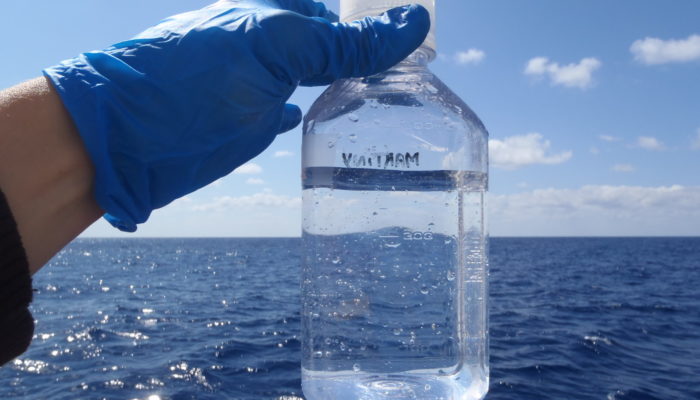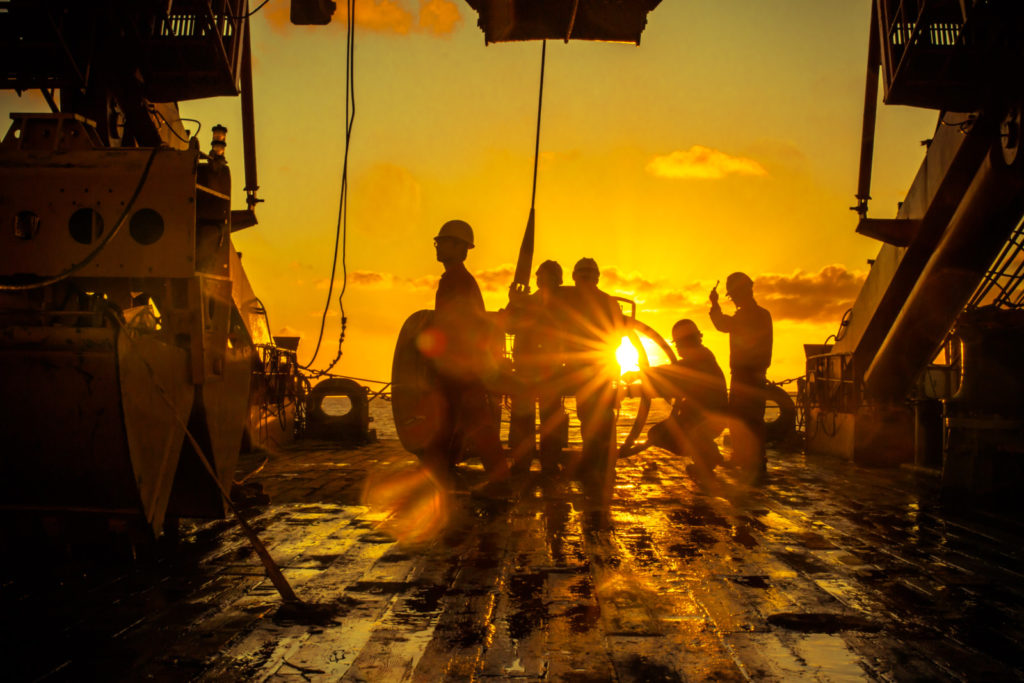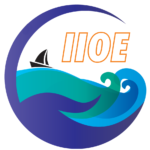
Research in many scientific disciplines can be done singlehandedly by learning from the printed pages, solving complex equations and analyzing the data while sitting alone in an office. But observational ocean science research demands an involved team effort to get meaningful insights of the ocean. This is primarily because:
- The Ocean is vast – it is humanly impossible for anyone to conduct research everywhere in the ocean,
- Ocean Science is an interdisciplinary subject and requires researchers from physical, chemical, mathematical, earth and life sciences to work together
- Field observations are challenging with big investments while still requiring a skilled team onboard.
Perhaps these are the reasons a number of networks for early career ocean scientists (Ocean ECS) have been established in the last decade. The United Nations Decade of Ocean Science for Sustainable Development (2021-2030) is a stepping stone on which many ECS will walk and help to lead us to a healthy ocean.

Ocean sciences research demands an involved team effort (Credit: Jianlin Liao distributed via imaggeo.egu.eu)
I have completed my doctoral studies a decade ago and presently enjoy the last phase of my early career. I am a member of the International Association for the Physical Sciences of the Oceans (IAPSO) Early Career Scientists network and the chair of early career scientist network of the second international Indian Ocean Expedition (IIOE-2). Both networks are young but different in many ways. The IAPSO network has a strong global representation of ocean ECS of physical and chemical sciences. While the IIOE-2 network has a fair representation of physical, chemical, biological and geological oceanographers who have a strong desire to improve our understanding of the otherwise undersampled Indian Ocean. I have a fun job of connecting these two networks with the other ocean research networks for a larger goal of dissemination of any ocean related information that helps and supports ECS in multiple ways.
The IAPSO network led a group review of the second order draft for the IPCC Six Assessment Report (AR6) for Chapter 9: Ocean Cryosphere and Sea Level Change between April – May 2020. This involved consolidating and editing the comments from the team of ECS. This experience was instrumental in introducing ECS to the IPCC review process and we hope this will encourage more ECS to contribute to the IPCC. Our networks circulate job information and field work opportunities of interest to ECS through various social media platforms.
As a byproduct of connecting the networks, it has also helped me professionally to a great extent. I have established some fruitful collaborations through networking. These collaborations have resulted in some of the most comprehensive studies of the ocean. Being in the leadership role of ECS has connected me to top-notch ocean researchers in the world and helped me to grow as a scientist.
Last year I joined the editorial board of Ocean Science – an EGU journal. Finding expert reviewers is the most challenging task for me as an editor. The contacts I made through networking help me to find reviewers for Ocean Science manuscripts. I will soon be joining JGR-Oceans as an Editor. I am sure the networks that I have established will help me immensely to also find excellent reviewers in the future. With this blog, I encourage young oceanographers to join and become active in these networks that are specifically designed for them. We can only achieve an understanding of the global ocean and make this world (ocean) a better place if we are embarking on those challenging tasks together.
Edited by Meriel J. Bittner
References & Further reading:
- Understanding the Indian Ocean system: past, present and future. Special issue jointly organized between Biogeosciences, Atmospheric Chemistry and Physics, Ocean Science, and Solid Earth
- Early Career Scientists Network (ECSN) of IIOE-2: to bring together the young scientists working on the Indian Ocean, to encourage exchange and participation, for the overall all aim to enhance the understanding of the Indian Ocean
- The International Association for the Physical Sciences of the Oceans (IAPSO) Early Career Scientists network

